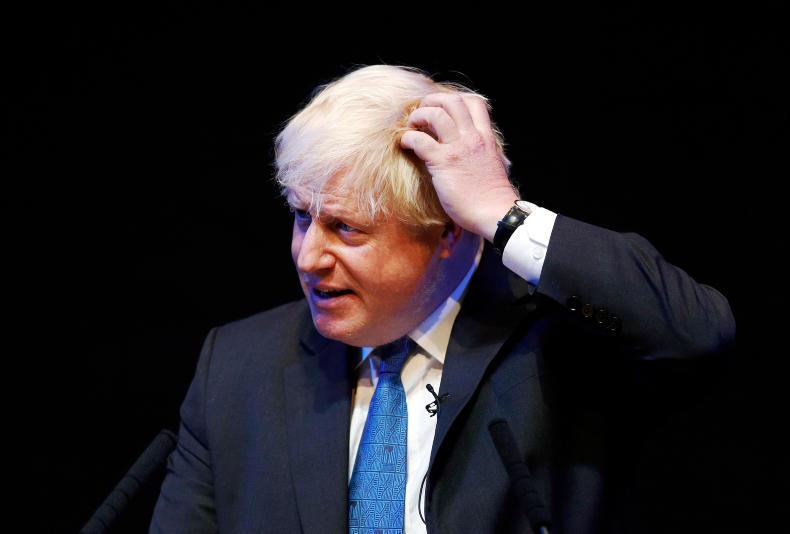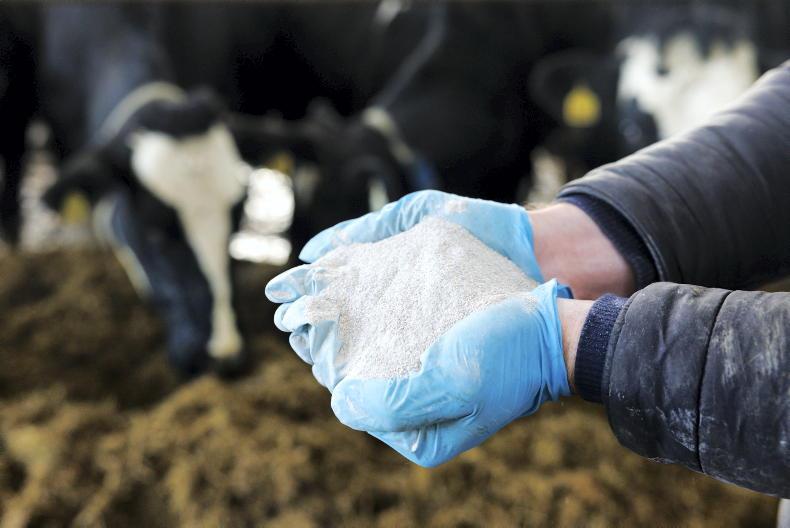Irish food exports to the UK would become €0.5bn more expensive for UK shoppers if the pound sterling hit parity with the euro.
As of this week, sterling is trading at £0.90 against the euro, but it’s highly likely we could see the value of sterling plunge to parity with the euro in the event of a no-deal Brexit.
Weakest level
In early August, sterling hit its weakest ever level of £0.94 against the euro after UK prime minister Boris Johnson said he was prepared to take the UK out of the EU by 31 October without a deal.
The volatility in the value of sterling has increased dramatically since Johnson took office and it has major consequences for Irish food exports to the UK.
Getting some fresh air up in Aberdeenshire, with the family who manages Darnford Farm. Such a beautiful part of the UK. Today we’re giving our amazing farmers in Scotland a boost of over £211 million.https://t.co/nIm4WiJVg7 pic.twitter.com/c0mUsIXbvC
— Boris Johnson (@BorisJohnson) September 6, 2019
In 2018, Ireland exported €4.5bn worth of food and drink to the UK.
Should sterling move to parity, the cost of buying this same amount of food would rise by €500m for already cash-strapped UK consumers to €5bn.
This would be bad news for Irish producers and food companies, already operating off tight profit margins.
Implications
Sterling parity has massive implications for certain products, particularly Irish exports of beef, cheese, pork, consumer foods and mushrooms.
In 2018, UK shoppers bought £370m worth of Irish cheese and £225m of Irish butter.
Should sterling hit parity, this same volume of cheese would cost UK shoppers £410m (+£40m), while the same amount of butter would cost £250m (+£25m).
The UK also imports £120m of Irish-made infant formula every year. The cost of this would rise to £135m for UK shoppers.
Meat
On the meat side, beef is the big loser should sterling hit parity with the euro.
Last year, the UK imported 300,000t of Irish beef at a cost of £1.1bn.
The cost of the same amount of Irish beef would rise by a whopping £125m with sterling at parity to £1.25bn.
The cost of importing Irish pork would rise by close to £40m to £375m for UK shoppers, while Irish sheepmeat would cost an additional £6m to £55m.
Additionally, the cost to UK shoppers of buying prepared consumer foods from Ireland would rise from £1.35bn last year to £1.5bn (+£150m) in the event of sterling hitting parity with the euro.
When taken as a whole, the cost of Irish food would become £500m more expensive for UK shoppers should sterling hit parity.
For the Irish agri-food industry, this would be a seriously negative development.
Profit margins are already thin in the industry and cash-strapped UK shoppers are unlikely to fork out more money for Irish food.
Fresh weakness in the value of sterling would only further dent consumer confidence in the UK.
As Ireland’s single-largest market, accounting for 37% of all our agri-food exports, any blip in UK buying power will hurt farmgate prices in Ireland.
Conversely, should the UK reach a deal with the EU, the value of sterling is likely to rally strongly against the euro, which would boost the competitiveness of Irish food being sold in the UK.










SHARING OPTIONS